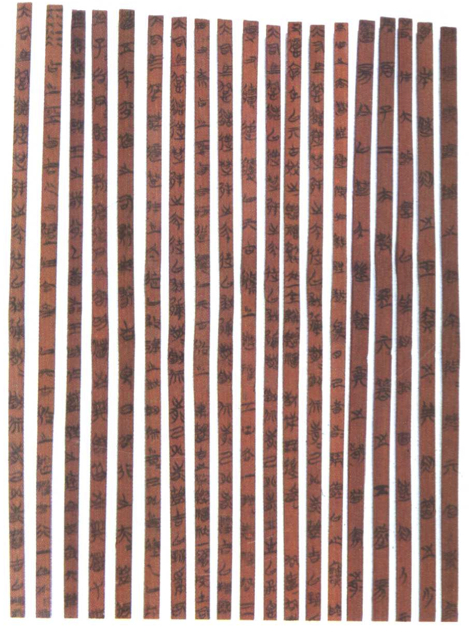VRS Spotlight: Jue Guo
Ancient China is renown for its empires and bureaucracies, so are the kings and bureaucrats who made the empires and worked for the bureaucracies. Their lives and deeds, when it mattered for the fate of the state, are recorded in political narratives, moral tales, and many eventually became the archetypal sage or ruthless rulers, loyal or treacherous ministers, upright or corrupted officials in the dynastic histories. Fascinated by the political grandeur, it is easy to forget that these historical actors were also once individuals, who had lives beyond the court and duty.

Bamboo Manuscripts from Baoshan Tomb 2, Color Plate XV-2, Baoshan Chumu, 1991
The forgotten, or rather, overlooked, aspects of ancient lives and their intertwined political, social, religious, and personal lifeworlds are the themes of the book, A Life on Display: Reconstructing the Worlds of a Chu Official in Early China, that I am writing at ISAW as a Visiting Research Scholar for the academic year 2015-16. Writing this book is largely made possible by the rapidly developing Chinese archaeological efforts in the past four decades or so, which continuously yield richer and unknown details that are absent from the transmitted literature, especially for the early periods for which historical sources are scarce. Archaeological materials also force historians to rethink conventional text-based historiography in light of methodologies developed in studies of material culture, objects, and visual arts. My book, utilizing primarily archaeological materials retrieved from a remarkably preserved and meticulously excavated fourth-century B.C.E. tomb from southern China (Baoshan Tomb 2), is precisely such an attempt to address the lacuna of individual lives and fuller lifeworlds in early China and experiment an integrated methodology that draws its analytical forces from archaeology, anthropology, and history.
Read more about VRS Jue Guo's research on her bio page here.
Information on Jue's upcoming lecture at ISAW on February 2nd "Excavating One Man's Lifeworlds in Early China" can be found here on our Events page.